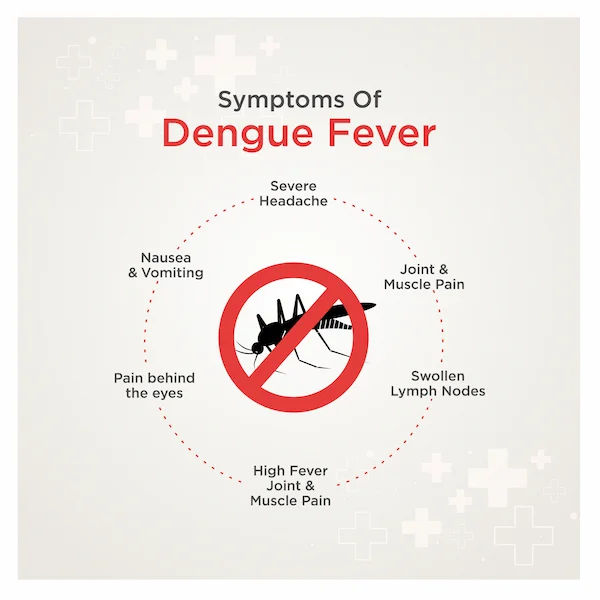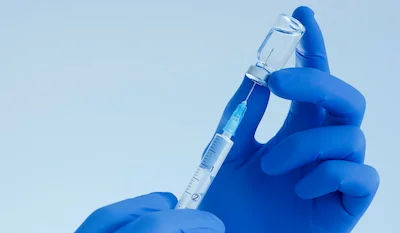The Essential Guide to Child Vaccination: Schedule, Safety, and Benefits
Ensure your child's health with this comprehensive guide to vaccinations. Learn the recommended schedule, safety tips, and benefits of immunisation for lifelong protection.

Written by Dr. Dhankecha Mayank Dineshbhai
Reviewed by Dr. Vasanthasree Nair MBBS
Last updated on 13th Jan, 2026
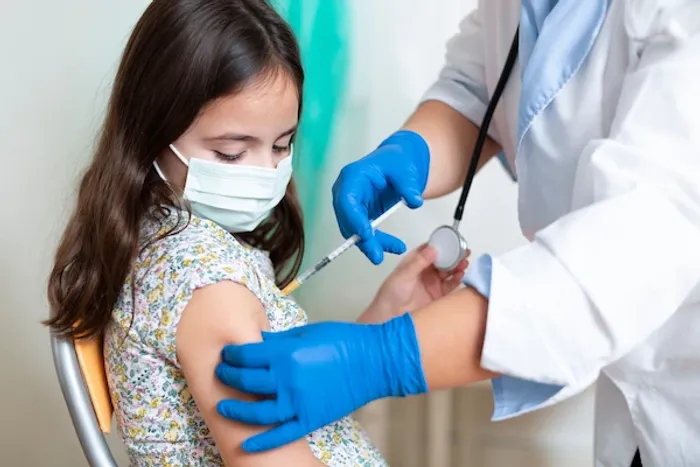
Introduction
As a parent, your child's health is your top priority. Among the most important decisions you'll make is ensuring they receive their vaccinations on time. This comprehensive guide to vaccination in children is designed to empower you with clear, evidence-based information. We'll walk you through the recommended schedule, explain how vaccines work, address common concerns, and provide practical tips to make the process smoother for you and your child. Think of this as your one-stop resource for understanding one of modern medicine's most powerful tools for safeguarding your little one's health.
Why Vaccines are a Cornerstone of Child Health
Vaccines are a simple, safe, and effective way to protect children from harmful diseases before they are exposed to them. They work with the body’s natural defences to build resistance to specific infections. Thanks to widespread vaccination, diseases like smallpox have been eradicated globally, and others, like polio and measles, have become rare in many parts of the world. The primary benefit is individual protection, but the impact extends far beyond. When a high percentage of a community is vaccinated, it becomes difficult for a disease to spread, protecting those who cannot be vaccinated themselves—such as newborns or children with certain medical conditions. This concept, known as herd immunity, is a crucial public health achievement.
How Vaccines Train the Immune System
When a child is given a vaccine, their immune system is prompted to produce antibodies, just as it would if they were exposed to the actual disease. However, because vaccines contain only killed or weakened forms of germs like viruses or bacteria, they do not cause the illness or put the child at risk of its complications. Instead, the immune system learns to recognise and fight the germ efficiently. If the child is exposed to the full-strength disease in the future, their immune system can destroy it before it causes serious illness. It's like a training drill for the body's defences.
The Power of Herd Immunity
Herd immunity, or community immunity, is a form of indirect protection. When approximately 95% of a population is vaccinated against a highly contagious disease like measles, the chain of transmission is broken. This creates a protective "cocoon" around vulnerable individuals. This is vital for protecting infants too young for certain vaccinations, children with cancer or immune deficiencies, and those with severe allergies to vaccine components. Choosing to vaccinate is not just a personal choice; it's a contribution to community health.
Consult a Paediatrician for the best advice
Understanding the Childhood Immunisation Schedule
The recommended childhood vaccination schedule is carefully designed by medical experts to provide protection when children are most vulnerable to diseases. It is based on how a child’s immune system responds to vaccines at different ages and the timing of when they are most likely to be exposed to certain illnesses. Sticking to this timeline is the best way to ensure your child is protected without delay.
Birth to 15 Months: The Foundation Shots
The first few years are critical. Shortly after birth, babies receive their first dose of the Hepatitis B vaccine. At 6 weeks, the first round of key vaccines begins, including:
- DTaP: Diphtheria, tetanus, pertussis
- IPV: Inactivated polio vaccine
- Hib: Haemophilus influenzae type b
- PCV: Pneumococcal conjugate vaccine
- RV: Rotavirus vaccine
These are followed by subsequent doses at 10 weeks, 14 weeks, 6 months, and 9 months. The MMR vaccine (measles, mumps, rubella) is typically given between 9 and 12 months. This schedule is essential because a newborn's immune system is still developing, and these diseases can be extremely severe in infancy.
18 Months to 6 Years: Boosters and Preschool Readiness
This phase involves crucial booster shots. A booster dose is an additional administration of a vaccine to "remind" the immune system about the pathogen, ensuring long-lasting protection. Key boosters given around 18 months include DTaP, IPV, and the first booster for MMR. Before starting school (around 4-6 years), children receive another round of boosters for DTaP and IPV. This ensures they are fully protected as they enter a more social environment where germs can easily spread.
7 to 18 Years: Preteen and Adolescent Vaccinations
Protection doesn't end in early childhood. Preteens and teenagers need vaccines too. Around 10-12 years, the Tdap booster (a similar vaccine to DTaP, with a reduced dose of the pertussis component) is recommended. This is also the time for the HPV vaccine (human papillomavirus) to protect against cancers caused by HPV, and the MenACWY vaccine (meningococcal conjugate vaccine). A booster for MenACWY is recommended at age 16. Staying on top of this vaccination schedule is key to lifelong health.
Common Vaccines and the Diseases They Prevent
Understanding what each vaccine fights can reinforce its importance.
The MMR Vaccine: A Shield Against Measles, Mumps, and Rubella
The MMR vaccine protects against three serious viral infections:
- Measles: A highly contagious virus that causes fever, cough, and a rash. It can lead to severe complications like pneumonia, encephalitis (brain swelling), and death.
- Mumps: Causes painful swelling of the salivary glands, fever, and headache. It can lead to
- meningitis and, in rare cases, infertility in males.
- Rubella (German Measles): A mild illness in children, but devastating to unborn babies if a
- pregnant woman contracts it, causing severe birth defects.
The MMR vaccine is a safe and effective way to prevent all three.
The DTaP Vaccine: Defending Against Diphtheria, Tetanus, and Pertussis
The DTaP vaccine protects children from three dangerous bacterial infections:
- Diphtheria: A serious throat infection that can create a thick coating, leading to breathing problems, paralysis, and heart failure.
- Tetanus (Lockjaw): Caused by bacteria entering a wound, leading to painful muscle stiffness and spasms, often leading to death.
- Pertussis (Whooping Cough): Causes severe, uncontrollable coughing fits that make it hard for infants to breathe, eat, or drink. It can be fatal, especially in babies.
The DTaP vaccine is critical for preventing these dangerous diseases.
Addressing Parental Concerns: Vaccine Safety and Side Effects
It's natural for parents to have questions about vaccine safety. Rigorous testing and continuous monitoring are conducted before a vaccine is approved and added to the schedule. In India, organisations like the Indian Academy of Paediatrics (IAP) and the Ministry of Health and Family Welfare oversee this process.
Common, Mild Side Effects vs. Rare, Serious Reactions
Most side effects are mild and temporary, a sign that the body is building protection. These include:
- Soreness, redness, or swelling at the injection site.
- A low-grade fever.
- Fussiness or tiredness.
Serious allergic reactions are extremely rare (less than 1 in a million doses). The benefits of vaccination in preventing serious disease far outweigh the minimal risk of a severe reaction. If your child develops a high fever, shows signs of distress, or if you have any concerns about their reaction, consult a doctor online with Apollo24|7 for immediate guidance.
Debunking Common Myths About Vaccine Ingredients
A common myth suggests a link between vaccines and autism. This claim originated from a single, deeply flawed study that has been retracted and disproven by numerous large-scale studies involving millions of children. Ingredients like thimerosal (a preservative) and aluminium (an adjuvant to boost immune response) are used in safe, minuscule amounts. They are also found naturally in the environment and in food in much larger quantities. The evidence is clear: vaccines are safe and are not linked to developmental disorders.
Preparing for Vaccination Day: A Parent's Checklist
A little preparation can make vaccination day less stressful. Here are some simple strategies:
- Talk to your child: For toddlers and older children, explain in simple terms that a quick poke will help keep them healthy.
- Dress comfortably: Choose loose-fitting clothes for easy access to the thigh or arm.
- Bring distractions: A favourite toy, book, or video on your phone can be a great distraction.
- Inform the doctor: Tell the paediatrician about any allergies or if your child is feeling unwell.
- Stay calm: Your child looks to you for cues. A calm and reassuring demeanour helps immensely.
What to Do After Vaccination: Soothing Your Child
After your child’s vaccination, there are a few simple ways to help them feel more comfortable:
- Comfort them: Cuddle, hug, and speak softly to your baby or child.
- Manage fever: If a fever develops, your doctor may recommend a weight-appropriate dose of paracetamol.
- Soothe the injection site: A cool, wet cloth can help reduce soreness and swelling.
- Monitor: Keep an eye on your child for the next 24-48 hours for any unusual reactions, but expect only mild symptoms.
Conclusion
Navigating the world of childhood vaccination can seem daunting, but it is one of the most powerful steps you can take to ensure your child's long-term health. The science is robust, the safety record is excellent, and the benefits are undeniable. From protecting against historic scourges like polio to preventing modern threats like HPV-related cancers, vaccines represent a triumph of preventive medicine. By understanding the schedule, the science, and the safety data, you can make an informed and confident decision for your family. Keep a record of your child's vaccinations, stay in close communication with your paediatrician, and remember that each shot is a shield, building a healthier future for your child and your community. If you have any lingering questions or concerns about your child's immunisation status, booking a consultation with a paediatrician on Apollo24|7 can provide personalised advice and peace of mind.
Consult a Paediatrician for the best advice
Consult a Paediatrician for the best advice

Dr. Shubhadeep Das
Paediatrician
17 Years • MBBS, MD (Paediatrics), FRCPCH (London), FRCP(Edinburgh), FRCP (London), EPIC Diploma, Fellowship in Paediatric Intensive care & Cardiac Intensive care (Canada and UK ).
Kolkata
Dr Shubhadeep Das's Child care clinic, Kolkata
(150+ Patients)

Dr Yaja Jebaying
Paediatric Gastroenterologist
9 Years • MBBS, MD PEDIATRICS, FELLOWSHIP PEDIATRIC GASTROENTEROLOGY AND HEPATOLOGY AND LIVER TRANSPLANTATION
Delhi
Apollo Hospitals Indraprastha, Delhi
(25+ Patients)
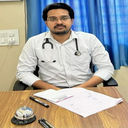
Dr. Anveez M A
Paediatrician
7 Years • MBBS, MD (Paed.)
Bansdroni
Siddhita Healthcare., Bansdroni

Dr. Suhena Sengupta
Paediatrician
15 Years • MBBS, IPPC
Kolkata
MCR SUPER SPECIALITY POLY CLINIC & PATHOLOGY, Kolkata
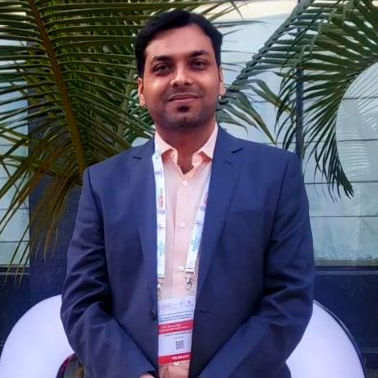
Dr. Dikpati Mukherjee
Paediatrician
12 Years • MBBS, MD (Paed.)
Kolkata
MCR SUPER SPECIALITY POLY CLINIC & PATHOLOGY, Kolkata
Consult a Paediatrician for the best advice

Dr. Shubhadeep Das
Paediatrician
17 Years • MBBS, MD (Paediatrics), FRCPCH (London), FRCP(Edinburgh), FRCP (London), EPIC Diploma, Fellowship in Paediatric Intensive care & Cardiac Intensive care (Canada and UK ).
Kolkata
Dr Shubhadeep Das's Child care clinic, Kolkata
(150+ Patients)

Dr Yaja Jebaying
Paediatric Gastroenterologist
9 Years • MBBS, MD PEDIATRICS, FELLOWSHIP PEDIATRIC GASTROENTEROLOGY AND HEPATOLOGY AND LIVER TRANSPLANTATION
Delhi
Apollo Hospitals Indraprastha, Delhi
(25+ Patients)

Dr. Anveez M A
Paediatrician
7 Years • MBBS, MD (Paed.)
Bansdroni
Siddhita Healthcare., Bansdroni

Dr. Suhena Sengupta
Paediatrician
15 Years • MBBS, IPPC
Kolkata
MCR SUPER SPECIALITY POLY CLINIC & PATHOLOGY, Kolkata

Dr. Dikpati Mukherjee
Paediatrician
12 Years • MBBS, MD (Paed.)
Kolkata
MCR SUPER SPECIALITY POLY CLINIC & PATHOLOGY, Kolkata
More articles from Preventive Treatment
Frequently Asked Questions
What if my child misses a vaccine dose?
Don't worry. The concept of a 'catch-up immunisation schedule' exists for this reason. Consult your paediatrician, who will create a plan to get your child back on track without repeating doses unnecessarily.
Is it safe to give multiple vaccines at once?
Yes. Extensive research shows that receiving several vaccines at the same time is safe and does not overload a child's immune system. The immune system successfully handles thousands of germs every day. Combining shots reduces the number of clinic visits and ensures protection without delay.
Can my child get the disease from the vaccine?
With most vaccines (inactivated or killed), this is impossible. For a few live-attenuated vaccines (like MMR or chickenpox), a very mild form of the illness may occur (e.g., a few spots or a slight fever). This is not the full-blown disease and is a sign the vaccine is working.
Are there any children who should not be vaccinated?
In rare cases, yes. Children with severely weakened immune systems (e.g., from cancer treatment) or those who have had a life-threatening allergic reaction to a previous dose of a vaccine should not receive certain vaccines. Your paediatrician will assess your child's medical history.
Do the benefits of the polio vaccine outweigh the risks of drops vs. the injection?
Both the oral polio vaccine (OPV, drops) and the inactivated polio vaccine (IPV, injection) are extremely effective. The IPV is safer for children with compromised immune systems as it contains a killed virus. The current schedule in India often includes both to ensure maximum protection. The benefits of eradicating polio far outweigh the minimal risks associated with either vaccine.
.webp)
